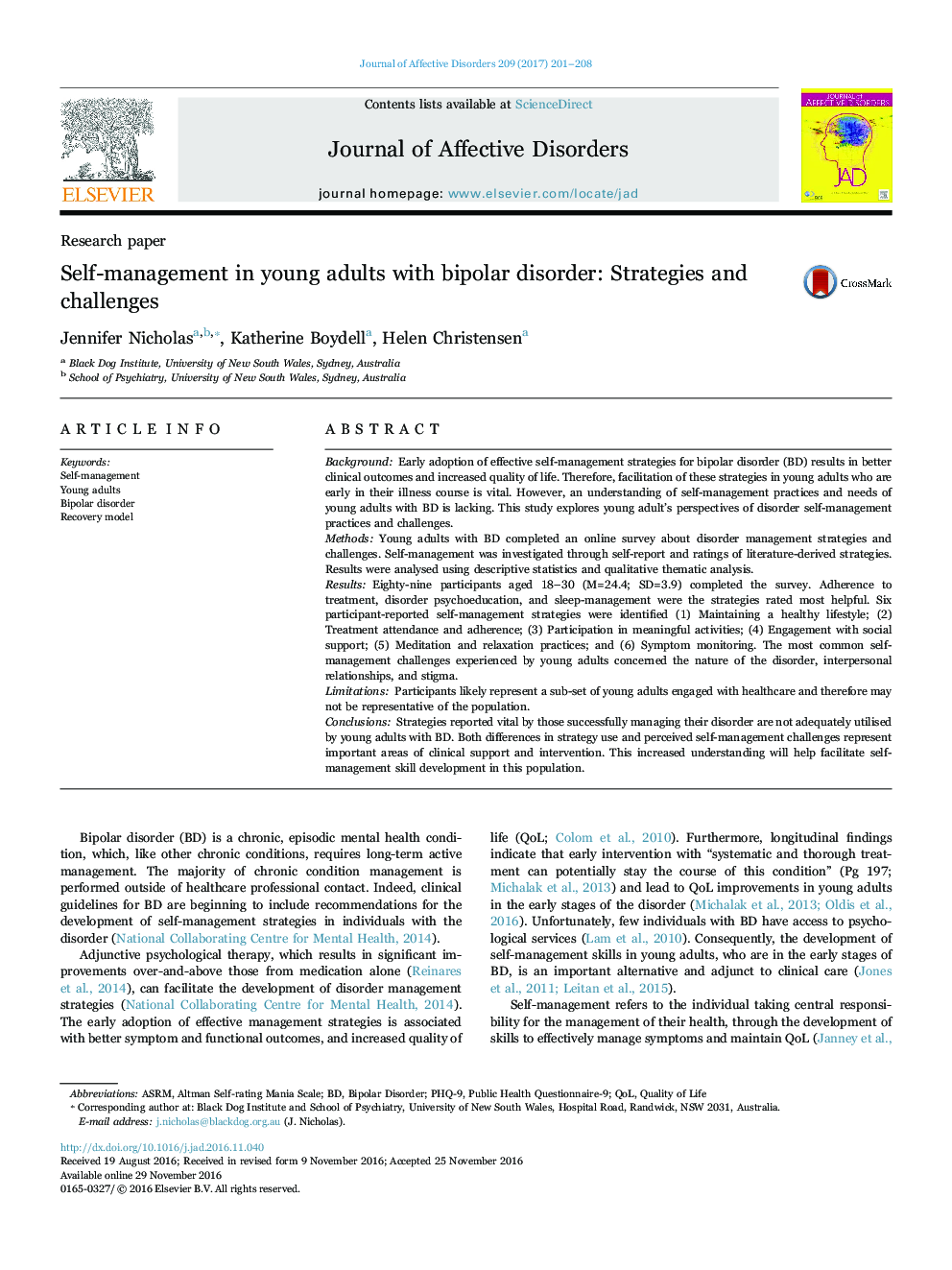| کد مقاله | کد نشریه | سال انتشار | مقاله انگلیسی | نسخه تمام متن |
|---|---|---|---|---|
| 5722287 | 1608116 | 2017 | 8 صفحه PDF | دانلود رایگان |
- Young adults engaged a wide range of strategies to manage their disorder.
- Some helpful strategies were replaced with negative strategies during episodes.
- Nature of the disorder, relationships, and stigma were the major challenges.
- Under use of key self-management strategies by young adults requires intervention.
- Clinical support for young adults should encompass the recovery perspective.
BackgroundEarly adoption of effective self-management strategies for bipolar disorder (BD) results in better clinical outcomes and increased quality of life. Therefore, facilitation of these strategies in young adults who are early in their illness course is vital. However, an understanding of self-management practices and needs of young adults with BD is lacking. This study explores young adult's perspectives of disorder self-management practices and challenges.MethodsYoung adults with BD completed an online survey about disorder management strategies and challenges. Self-management was investigated through self-report and ratings of literature-derived strategies. Results were analysed using descriptive statistics and qualitative thematic analysis.ResultsEighty-nine participants aged 18-30 (M=24.4; SD=3.9) completed the survey. Adherence to treatment, disorder psychoeducation, and sleep-management were the strategies rated most helpful. Six participant-reported self-management strategies were identified (1) Maintaining a healthy lifestyle; (2) Treatment attendance and adherence; (3) Participation in meaningful activities; (4) Engagement with social support; (5) Meditation and relaxation practices; and (6) Symptom monitoring. The most common self-management challenges experienced by young adults concerned the nature of the disorder, interpersonal relationships, and stigma.LimitationsParticipants likely represent a sub-set of young adults engaged with healthcare and therefore may not be representative of the population.ConclusionsStrategies reported vital by those successfully managing their disorder are not adequately utilised by young adults with BD. Both differences in strategy use and perceived self-management challenges represent important areas of clinical support and intervention. This increased understanding will help facilitate self-management skill development in this population.
Journal: Journal of Affective Disorders - Volume 209, February 2017, Pages 201-208
